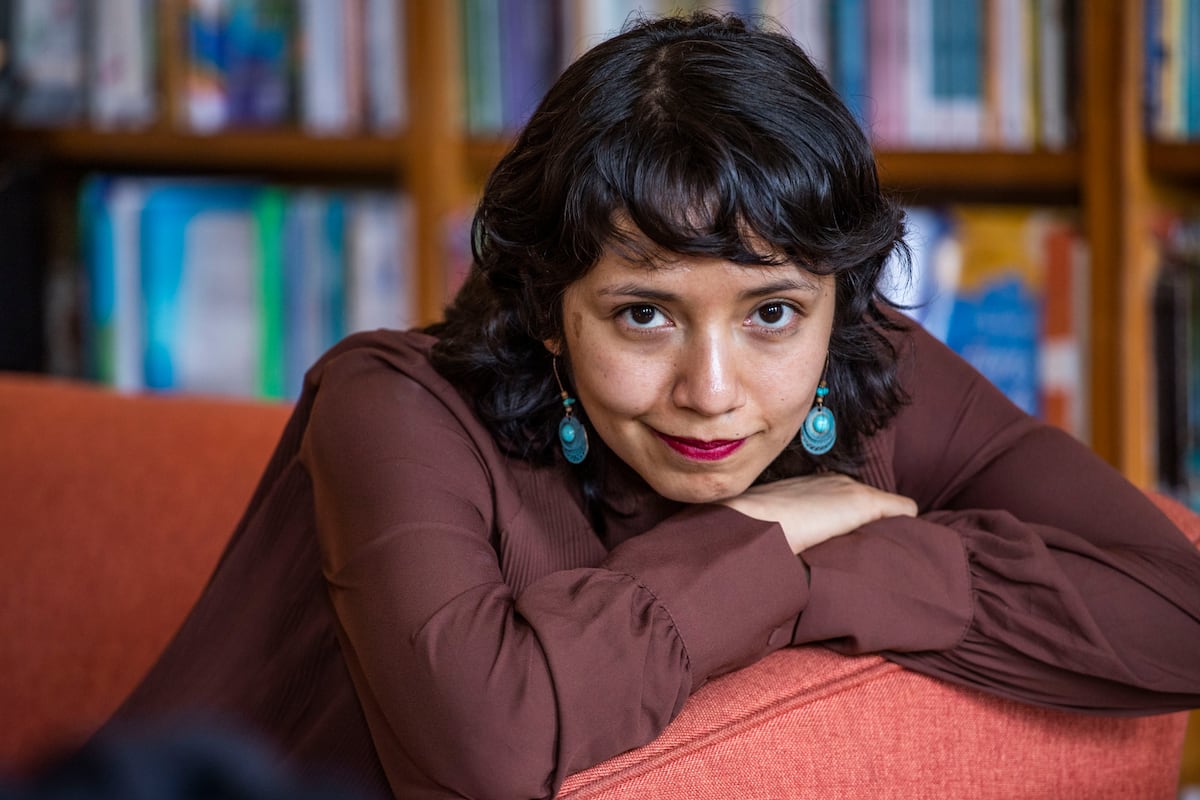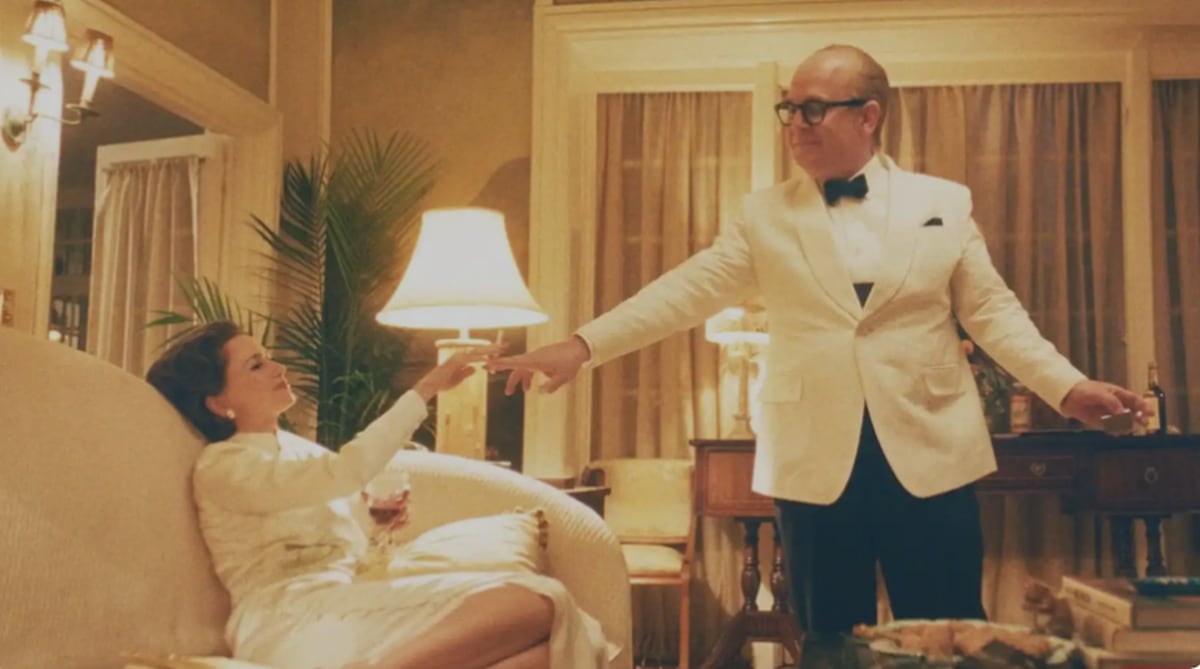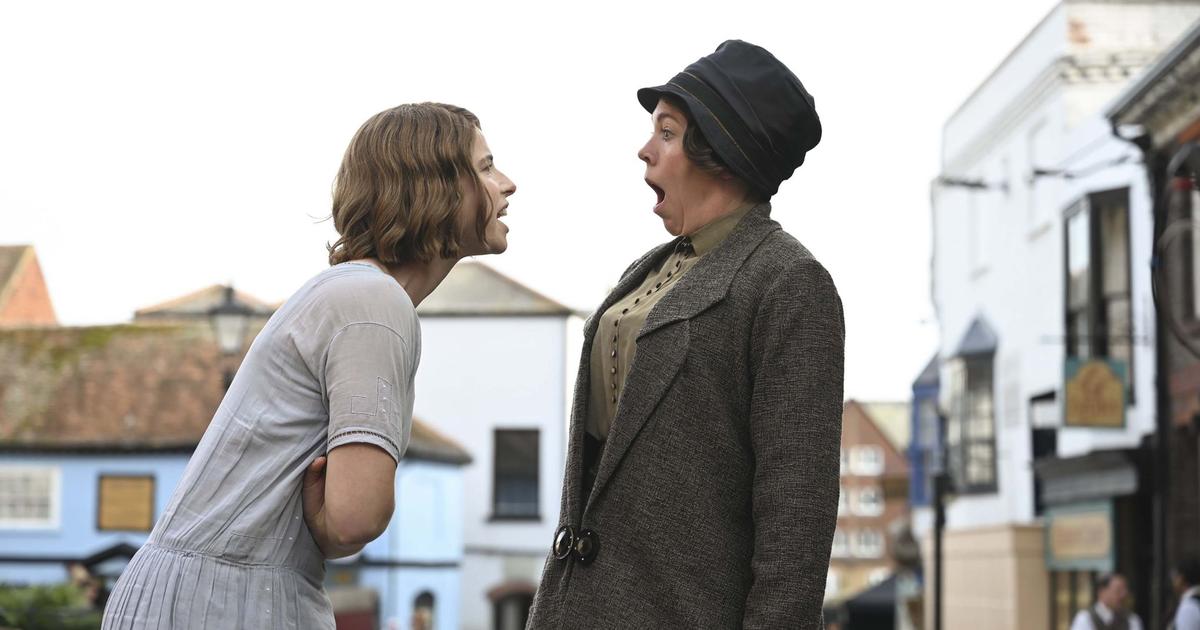Before entering the world of social violence and its effects, Olivia Teroba (Tlaxcala, 35 years old) was a voracious reader of fantastic literature. Her grandfather's library was full of books on economics and history, but one of her aunts took her by the hand and said, "Look, you're going to like these." He was eight years old and had just stumbled upon the universe of The Lord of the Rings. "From there I had the memory that one can approach literature by what feels closest," Teroba tells EL PAÍS on a Monday morning in a cafeteria in Mexico City.
That game of distances between what she feels near or far has accompanied her since then and has made her understand writing as a dialogue. Maybe that's why her prose is clean, direct and close, like two friends chatting over coffee. Author of the books of short stories Breathing Under Water (Paradise Lost, 2021) and Small Manifestations of Light (Dharma Books, 2022), her work has pivoted mainly on fictional narrative. Now, however, he republishes his first non-fiction book, Un lugar seguro (Sexto Piso, 2023), winner of the 2018 Emmanuel Carballo Essay Prize, which summons his native state.
Divided into 11 short texts, the book updates the notion of what Virginia Woolf then called A Room of One's Own. Based on her personal experiences and the readings that have marked her life, the author asks what else a working-class writer needs to write, besides a space in which to develop her creativity, and how the different physical or symbolic violence determine the way in which she relates to herself and her writing. On the horizon, the search for a friendlier environment in which to live and narrate life.
Question. Is the safe place built as a refuge isolated from others or from personal relationships?
Answer. I believe that relationships with others are very important. In recent rehearsals, it is considered how this contact can occur, when sometimes the first thing we encounter are obstacles. Sometimes, the same way of saying or understanding what we ourselves feel makes it difficult to communicate with other people.
Q. Words can be a bridge of communication, but also a barrier.
A. Of course. It is that language has many limitations, and it is precisely to be exploring these slips between words that allows you to find communication with other people.
Q. When he talks about insecurity, he mentions two dimensions: an external one, which has to do with the brutal violence that exists in Mexico, and an internal one, which has to do with discomfort with oneself, with one's own body. How do these two dimensions affect writing?
A. I think it's part of a macho, patriarchal structure that we live in and therefore it's reflected in a lot of other people's writings. It involves questioning our environment, trying to understand why we live this way and how we can create another way to do it. I think it is very, very present in my writing and I think I wanted to show how patriarchy has effects on many levels, how everything is linked.
Q. Violence, space, money. Is it mostly women who talk about material conditions or is it something more generational?
A. I think it's both, both generational and gender. There are a lot of questions I ask myself about how I can write. Okay, we need a room of our own, as Virginia Woolf says, but we also need a moderately safe environment. And I wonder how we can find time if we have to work so hard, where we can afford the leisure that gives rise to writing. Because writing has a lot to do with imagining, with having aesthetic experiences, with walking.
Q. How do you reconcile the idea that writing is born of leisure when it comes to turning it into a form of work? How does the relationship work in that shortlist?
A. Let's say they are stages of the same process. I try to be attentive to what arouses my curiosity or motivates my enthusiasm. But on the other hand, there is a very physical moment, which is when you are sitting in front of the keyboard, and that must also be taken into account, how writing involves work, and therefore deserves a fair remuneration.
Q. Postures, ailments... Do bodies matter when writing?
A. For me the relationship of the body and writing is very important, and just in an essay that I am writing now I am considering how much my relationship with my body has determined my writing over time, because much of it has been very sedentary, for example. But also my mood is very related. And there is another question that has to do with the extent to which our bodies can live with some well-being in this capitalist system.
Q. Is writing a form of resistance to the system?
A. Yes, I believe that writing is a form of resistance, and that it is also a way of giving place to our thinking, to our identity.
Teroba in Colonia Roma on May 22, 2023.Aggi Garduño
Q. In the book she rejects the typecasting of literature made by women or by men, but reflects on the fact that one writes from where one is. Where do you write from?
A. I write as a woman, but also from the periphery. I've been in Mexico City for a long time, but I grew up in a city [Tlaxcala] that is already the periphery of the city and has, as such, certain problems. Growing up there greatly influenced my writing, even the way I read, the way I approach books.
Q. How did it influence?
A. Especially because of the little access there is to reading and books. And also because of the way they look. Cultural capital is seen as a form of prestige, of being better than others. That sometimes made me stay away from the readings. From a very young age I was discriminating against those that repelled me and others that approached me.
Q. One of the authors who approached her was Elena Garro. Where does the obsession with it come from?
A. In fact, I think I'm still obsessed with Elena Garro [laughs]. This is one of the places where the book started from. I had been writing stories for quite some time and they didn't convince me. I began to realize that many of the references I had were somewhat distant and that is why I felt dissatisfied. I was looking for female representations in places where there were none or where they were very biased. I tried to open this panorama and I came across it. Then I also wondered why I hadn't read it before.
Q. In the book she denounces that the treatment received by women writers implies that they appear by spontaneous generation, as if they did not belong to a literary tradition. Is reconstructing that genealogy a form of friendship between generations?
A. I think it is a form of friendship and, as such, it cannot be simplified in the sense of agreeing with all of us or that we are all going to be friends, but of understanding each other as the complex people that we are. For example, regarding the figure of Elena Garro, there are many positions with which I do not agree, but I still understand her value as a writer and her influence on my narrative. When constructing a genealogy, literature is also thought of in a more complex way.
Q. What role has female friendship played in your life?
A. It has been very comforting to meet a community of writers and friends with whom I can talk about common problems because of the way we experience the world. It has even boosted my writing. I actually have a friend that we meet to write twice a week by zoom, and we don't talk much, but we write in front of each other and I think this image is very beautiful.
Q. That breaks with the idea that writing is a solitary exercise, of withdrawing into oneself.
A. Yes, and I think it's very useful too, because sometimes that abstraction, these soliloquies, can be very tiring [laughs]. Being with the same stuff there, locked up, can be a bit tiring too, and only our own voice resonates.
Q. There is a boom in non-fiction narrative, especially written by women. Not only for what is being written now but also for the texts that are being recovered. Why do you think this is?
A. I think it's because literature is always looking to break with norms and break with limits. And one of the limits was to think that our own experiences were not literary or that they could not have a space in public discourse.
The author of 'A Safe Place', Olivia Teroba, in Mexico City.Aggi Garduño
Q. This is the first time he has written directly from the self. What has it been like to face it without the screen of fiction?
A. Well, at first it was complicated, even from the writing. Sometimes you're writing and you say, "But I want people to know about this?" So what I did was try not to think about others while writing. But I did think about others when I was editing the book, and I thought, "Is this data necessary, can I delete something?"
Q. How did it impact your environment?
A. There was a little family crisis when the book came out, really. And there too I learned many things about autofiction. There were reactions that made me think it would have been better to talk about it before it was published [laughs]. I will try to do it with my next books. But this small crisis resulted in many positive conversations. There was even a joke in the family of: "I still didn't have my conversation with Oli because of his book" [laughs].
Q. Are you going to go back to fiction or are you going to continue exploring that part?
A. I have an autobiographical novel project that has to do with your previous question, about how we build identity from memories, and my intention is to contrast points of view with them about shared events. And I have a novel based on the life of Elena Garro, which is totally fiction and for which I have a writing scholarship now. That's why the other project is a bit stalled. I'm more focused on fiction these days, really.
Q. To take a break from herself.
A. Yes, yes, of course. That's what happens to me a lot. The restlessness is awakening me a new project and another new project, but I try to take everything calmly.
Subscribe hereto the newsletter of EL PAÍS Mexico and receive all the informative keys of the news of this country
75% discount
Subscribe to continue reading
Read without limits
Read more
I'm already a subscriber







/cloudfront-eu-central-1.images.arcpublishing.com/prisa/DCLIXOYIQBESZAIQWZIFE7WEUQ.JPG)

